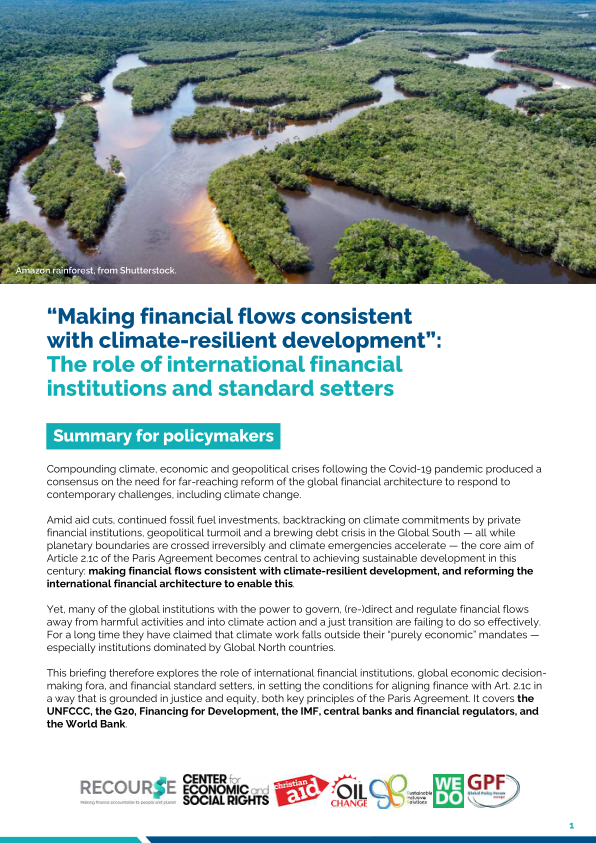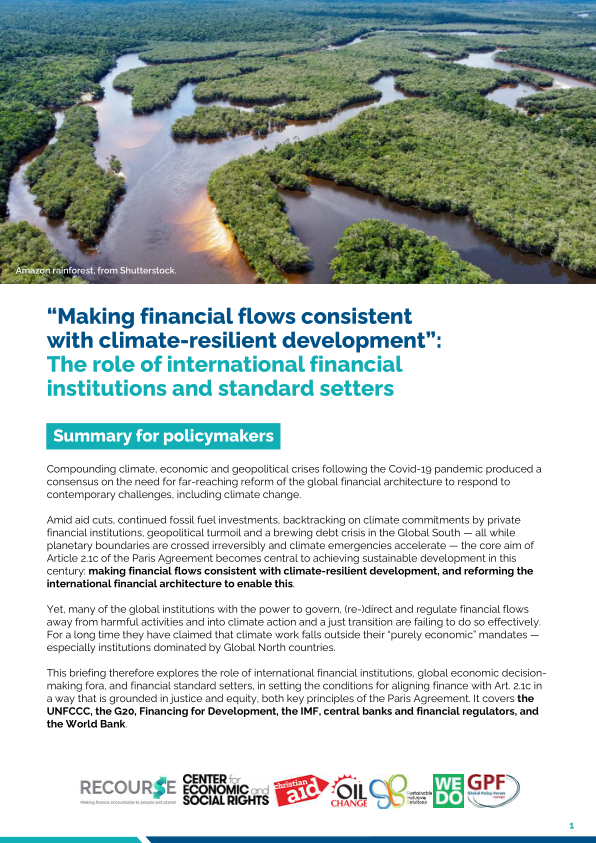
CESR has contributed to a new joint briefing, led by Recourse, that examines the role of international financial institutions and standard-setting bodies in aligning global financial flows with climate-resilient development, as required by Article 2.1c of the Paris Agreement.
The analysis covers the International Monetary Fund, World Bank, central banks, financial regulators, the G20, the United Nations Framework Convention on Climate Change (UNFCCC), and the Financing for Development process. It shows how these institutions continue to channel finance into fossil fuels, deepen debt in the Global South, and fail to redirect capital toward climate action and just transitions.
The problem is not a lack of options, but a failure to act. The briefing calls on high-income countries to raise public finance, cancel unsustainable debt, end fossil fuel subsidies, and reform global financial governance so that it supports human rights and ecological integrity.
The document was produced by Recourse with contributions from CESR, WEDO, Oil Change International, Christian Aid, Sustainable Inclusive Solutions, Global Policy Forum, and Eurodad.
As global processes like COP30 in Brazil, the G20 in South Africa, and the Financing for Development conference unfold this year, the briefing outlines steps to fulfill the promise of Article 2.1c. These include shifting the burden off developing countries and focusing instead on what wealthier nations must do to address structural injustice.

